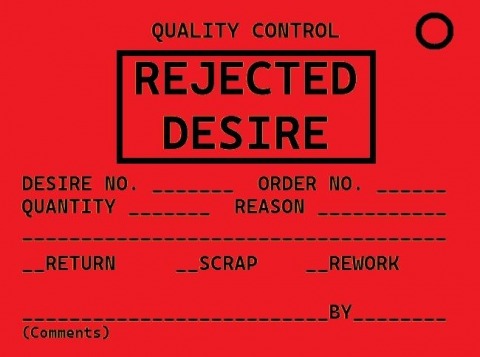
The Underground Thomist
Blog
Targeting Opponents and Turning the Other CheekMonday, 12-08-2025
Is it right for an officeholder to use the legal machinery to target opponents? This is a serious question, and the pundits are right to suggest that what we now call “lawfare” establishes a dangerous precedent. However, you don’t have to like Mr. Trump to believe that in his case, at least, the question has been misframed. For are his opponents being targeted for opposing Mr. Trump, or for opposing him by illegal means? After all, the precedent for lawfare had already been established – and established by them. I don’t suggest that lawfare had never been used before during the history of the republic. It has been, and by Republicans too: Think of Richard Nixon’s plans for his enemies list, plans which were ultimately unsuccessful. However, lawfare has now become the settled policy of the Left whenever they lose elections or are in danger of losing them. In 2016, the instrumentalities of justice and national intelligence were spectacularly mobilized to concoct narratives of collusion between Mr. Trump and the Russians, narratives which were known to be false by the officials who promulgated them – if the term “spectacularly” can be used of something which was intended to be secret. Those involved were, by the way, already quite experienced in this sort of thing. When Mr. Trump won the election anyway, his opponents announced that they would do whatever it took to bring him down, even if they had to invent crimes for which to indict him. All in the name of defending democracy. This strategy was so crass and duplicitous that it provoked a popular revolt, catapulting Mr. Trump into a second term after the interregnum of Mr. Biden. Even as weak a candidate as Mrs. Harris was, it is very possible that Mr. Trump would not have won his second term if lawfare hadn’t so obviously been waged against him. Voters didn’t like it. So the question should not be whether an officeholder should “target his opponents,” but whether he may seek punishment for actual crimes committed against him. We don’t say that a mugging victim is “targeting his opponents” when he files charges against the muggers. That’s not mere revenge; it is justice. Needless to say, if you think some of Mr. Trump’s opponents haven’t perverted justice and violated his civil rights to bring him down, then by all means, protest their innocence. Perhaps some of them really are innocent. But don’t defend them just because they have been “targeted.” In that overbroad sense, every convicted criminal has been “targeted.” A plausible argument can be made that even if injustice was done to Mr. Trump, maybe he should turn the other cheek. After all, in a political climate as heated as ours, even indicting people for real crimes is made to look like mere retaliation – isn’t that exactly how the legacy media portray it? Mr. Trump’s careless rhetoric doesn’t help, because it often feeds into that way of telling the story. So even though indicting offenders for crimes isn’t the same thing as waging lawfare, couldn’t it deepen the precedent of waging lawfare anyway? But that reasoning is perverse too. Habitual criminals always think they are victims, and some people always sympathize with them. Consider again the fellow who was mugged. Should we say that he should turn the other cheek, because filing charges would make people think that his muggers had been victimized? Or that filing charges would provoke them to mug again in retaliation, “deepening the precedent” of mugging? Of course not. If they mug again, punish them again, and this time make the punishment more memorable. The question that not enough people are asking is this: What if those who subverted our system of justice just to “get” Mr. Trump aren’t prosecuted? What if they don’t face any consequences for violating his civil rights, not to mention those of many others? The context of Jesus’ widely quoted remark about turning the other cheek shows that He was speaking of insult, not injury: Of having one side of one’s face slapped with a palm, not of having one side of the throat sliced open with a knife. Is it really plausible that letting crooked officials who have done and attempted real crimes off the hook would cool things down – that they would go and sin no more? No. They, and those who think like them, would say, "Okay, lawfare didn't work the way we planned the first time around, or the second or third, but it came pretty close, and we didn't pay a price for trying it. Let's try it again. In fact, let’s double down this time." In fact, they are already saying that. Shouldn’t we take them at their word? Reminder:My new book, Pandemic of Lunacy: How to ThinkClearly When Everyone Around You Seems Crazy, willbe released in February and can be pre-ordered now.
|
Longing for a KingMonday, 12-01-2025
In view of the “No Kings” disturbances, I had better begin this post by making clear that I was not thinking of Mr. Trump when I wrote it. It has no more to do with him than with Mr. Biden, or any other recent president, or, for that matter, any recent president’s handlers. Let’s get on with it. I’ve noticed a small but surprising increase in sympathy for kingship as a form of government among some thoughtful young people, mostly online. Although this is still very much a minority tendency, it has become common enough that one young man whom I know in another English-speaking republic claims to have many friends who are out-and-out monarchists. Here in my own counttry, I come across persons of monarchist outlook only rarely (in four decades of teaching, I’ve met only a few explicit royalists), and I suspect that there is something unusual about his circle of friends. Or perhaps it has something to do with the Hispanic political traditions of his country of birth. But still, something else may be going on too. Just to be clear: Though young progressives these days claim not to share the nostalgia for kingship, large numbers of them are attracted to totalitarian oligarchies, which are far, far inferior to old-fashioned monarchies not only because they don’t want to share power (a characteristic of most kings too), but because they want to control everything. But that’s not my subject at the moment. Of course sympathy for kingship is nothing new. During the ages of civilization, government has usually been monarchical, if not mildly tyrannical. I don’t say that all monarchies admit to being monarchies. Long after the rise of the Caesars, the Romans kept up the pretense that their government was still a republic. In our own day, too, there is a strong drift toward concentration of power in the executive and away from the legislature. Here in America, it has taken a long time, perhaps because the original impetus for the United States was legislative – it began with the Continental Congress. In Europe, the process has been happening much more quickly, probably because the motor of European unity is not legislative, but bureaucratic. Envy of monarchies is nothing new either. In one of the most famous incidents in Scripture, the elders of Israel demanded that the prophet Samuel appoint a king so that Israel would be “like other nations.” Samuel, displeased, prays to God, who tells him warn them of what having a king will really be like. So Samuel does: These will be the ways of the king who will reign over you: He will take your sons and appoint them to his chariots and to be his horsemen, and to run before his chariots; and he will appoint for himself commanders of thousands and commanders of fifties, and some to plow his ground and to reap his harvest, and to make his implements of war and the equipment of his chariots. He will take your daughters to be perfumers and cooks and bakers. He will take the best of your fields and vineyards and olive orchards and give them to his servants. He will take the tenth of your grain and of your vineyards and give it to his officers and to his servants. He will take your menservants and maidservants, and the best of your cattle and your asses, and put them to his work. He will take the tenth of your flocks, and you shall be his slaves. And in that day you will cry out because of your king, whom you have chosen for yourselves; but the Lord will not answer you in that day. Since the elders insisted on having a king anyway, they were given one – and under most of the following kings, the experience turned out to be just as bad as they had been warned it would be. Preachers of the American colonial era took this story as the last word on kings. It proved, they said, that kingship is always bad, God is against it, and Israel before this had been “a perfect republic.” Not so fast: Things are more complicated than that. Even a good republic has what might be called a monarchical element, insofar as someone is at the head of things. As Thomas Aquinas points out, Moses had been a sort of king. However, his rule had included aristocratic and democratic elements too: Aristocratic because wise persons assisted in government, democratic because these wise persons were chosen both from the people and by the people. This might be called a mixed monarchy, though perhaps the Framers would have called it a mixed republic. Like Aristotle, St. Thomas himself thought that in most times and places, the mixed form of government is the best form of government. Yet even he didn’t consider it a one-size-fits-all solution to the problem of the best regime. He held strongly that because human beings are created free and morally responsible, they are best ruled not like slaves but like free men, having “something of their own” in their government. Yet on the other hand, echoing St. Augustine, he held that if the people become so corrupt that they no longer consider the common good in choosing those placed over them – for example, if they habitually take bribes for their votes – then the right to choose their own rulers must be taken away and given to those with greater moral competence. This approach has always made sense to me, although it presents obvious difficulties of its own. Some populations really are too corrupt to support a republic, but how is this to be decided, and how are those who do not succumb to corruption to bring about an alternative which is not even worse? Back to those thoughtful young people. Many of them are of the sort who would find a thinker like Thomas Aquinas congenial, so let me pose questions to them in Thomistic terms. ■ If you would like to have a monarchy instead of a republic, then you are obviously not proposing a monarchy with republican elements. You must be proposing either an absolute monarchy, or a blend of monarchy with aristocracy. Do you really imagine that either of these would be an improvement over what we have now? Things are dreadful, I admit. But even dreadful as they are, they would have to be very much worse to justify giving up what shreds of a republic we still retain. ■ If your argument is that because of legislative incompetence, we need to have a stronger monarchical element within the republic – an arrangement sometimes called a “crowned republic” -- we have been going in that direction for a long time, and it has not improved the long-term health of what we whimsically persist in calling our constitutional order. You might like it that Mr. Biden (or those who acted in his name) reversed everything Mr. Trump 45 did. You might like it that Mr. Trump 47 is reversing everything Mr. Biden did. But you cannot reasonably like the prospect of an endless succession of see-sawing administrations, reversing, reversing, reversing. ■ If you think the republic can no longer be sustained because the people no longer have the requisite level of virtue, then who do you think does have it? Democracy is not direct rule by “the people” as a whole -- how could everyone rule everyone? – but a majoritarian check on elites. Do you really suppose that our present elites are more virtuous than the rest of us, so that the check should be weakened or given up? The best argument for putting up with the merely average is that doing so may protect us from those who are much, much worse. As William F. Buckley Jr. once wrote, “I should sooner live in a society governed by the first two thousand names in the Boston telephone directory than in a society governed by the two thousand faculty members of Harvard University.” He wasn’t endorsing mediocrity as such, for he went on to say, “Not, heaven knows, because I hold lightly the brainpower or knowledge or generosity or even the affability of the Harvard faculty: but because I greatly fear intellectual arrogance.” Unfortunately, intellectual arrogance has become almost the defining characteristic of our current elites. ■ If what you want is to be ruled by different elites, then by which elites would you prefer to be ruled? Where are you going to find them, and how are they to be placed in power? Antirepublican monkeying with our form of government is not going to solve its problems. For it to work, the most pressing need is that we all become better people. Me too. And that is not strictly a political problem. Reminder:My new book, Pandemic of Lunacy: How to ThinkClearly When Everyone Around You Seems Crazy, willbe released in February and can be pre-ordered now.
|
Mercy, Yes, But Justice TooMonday, 11-24-2025
The following article of mine was recently published in First Things. +++ + +++ MERCY, YES, BUT JUSTICE TOOSometimes we hope desperately that our predictions are wrong. Fourteen years ago, I suggested that it was only a matter of time before character assassination would be replaced by real assassination. That has happened in a big way. Although the political murder of conservative activist Charlie Kirk has been called by some a tipping point, there have been a lot of political killings and attempted killings. And no, there is not “equal wrong on both sides,” a fact that has the unfortunate result of making efforts to do justice seem partisan. In [one more semester] I will retire from classroom teaching. Let me tell you where my students are these days. Though the number of moral relativists seems to have declined slightly in recent years, an alarming number now think it is righteous to riot, burn, and bully to advance their political causes. The idea that one must never do evil for a good result is a very hard sell. In a discussion of the Just War principle that noncombatants must not be deliberately targeted, I condemned the October 7 terrorists who raped, killed, and tortured the men, women, and children at a music festival. One student furiously told me that the music lovers “deserved it.” The problem isn’t that we aren’t moral beings, but, in a way, that we are moral beings. Conscience demands justification for our acts. If we refuse to repent or repudiate acts of grave evil, then in order to justify them, we are compelled to invent ever more extreme rationalizations, which eventually demand new evils along the lines of their depraved premises. Just read the comments on BlueSky. Just listen to some of our politicians. The State of Utah is seeking execution for Kirk’s assassin. What should a faithful Catholic think of the death penalty? First, let’s clear away the bromides. We are told by some that violence never solves anything. That statement is too broad. It does not solve the problem of human sin, but the use of just force by public authority protects against other violence and reinforces respect for moral law. We are told that vengeance belongs to God. Yes, but St. Paul explains that the governing authorities “do not bear the sword in vain,” because when they exact just retribution against wrongdoers, they are doing God’s work. We are told that capital punishment will not bring back the dead. But neither would a lesser punishment. The purpose of punishment is doing justice, not undoing death. We are told to turn the other cheek. Yes, if someone slaps me, I should keep my temper. But if he tries to shoot my family, he needs to be stopped. We are told that human life is sacred. But Genesis 9:6 presents the sacredness of human life not as an objection to capital punishment, but as a reason for it. “Whoever sheds the blood of man, by man shall his blood be shed”—why?—“for God made man in his own image.” We are told that the death of the wrongdoer deprives him of the opportunity for repentance. But isn’t the imminence of execution often the only thing capable of driving a hardened soul to repentance? Samuel Johnson remarked, “Depend upon it, Sir, when a man knows he is to be hanged in a fortnight, it concentrates his mind wonderfully.” We are told that we must be merciful. Certainly. We should pray for the restoration of the sinner, and yes, from the fact that a given punishment is deserved, it does not follow that it may not be lessened. But as Thomas Aquinas points out, punishment has three aims: Correcting the wrongdoer, discouraging others from doing wrong, and relieving those whom he has hurt, because failure to punish dishonors and mocks the victims. It follows that we may lessen deserved punishment only provided that doing so does not undermine these three conditions. Perhaps the most interesting and measured argument against capital punishment comes from the great Pope John Paul II. Unlike some who claim to be following his lead, he acknowledges the consistent teaching of the Church that capital punishment is not wrong in principle, and he does not suggest that this doctrine could simply be sponged away. However, he offers two conclusions. One conclusion is doctrinal. Capital punishment should be used only reluctantly, when no lesser punishment can defend society. As a faithful Catholic, I accept this without reservation. But the other conclusion is prudential. Because of improvements in prisons, he thinks, such cases are now almost non-existent. But the Church herself teaches that so long as they follow her moral doctrine, citizens and public officials must exercise their own prudence. Thus, faithful Catholics may agree with John Paul II — but also respectfully disagree — about just how often capital punishment is indispensable for society’s protection. John Paul II seems to have assumed that when a criminal is locked up, society is no longer at risk of harm. But the protection of society includes its moral and spiritual protection, not just its physical protection. Returning to St. Thomas’s three purposes of punishment, we must ask: Do our prisons correct their prisoners? Criminals socialize other criminals in prison. They tend to become not better, but worse. Many are then released to do further harm. When no one is executed even for heinous crime, can the community be preserved from becoming still more careless about wrongdoing? The trend seems to lie in the other direction. These days, even non-criminals celebrate assassination. By failing to employ capital punishment even when it is most obviously deserved, are we honoring the victims? No, we are insulting the memories of the dead, and we are mocking the pain and sorrow of those left behind. Mercy, yes. But only in unity with justice. It exceeds my purpose to say what should be done about Charlie Kirk’s murderer. But when we are too casual about the conditions for mercy, we discredit both justice and mercy itself. Reminder:My new book, Pandemic of Lunacy: How to ThinkClearly When Everyone Around You Seems Crazy, willbe released in February and can be pre-ordered now.
|
IroniesMonday, 11-17-2025
Isn’t it ironic that encouraging people to deny their own biological sex is called “affirming their gender”? Isn’t it ironic that surgically mutilating them, hormonally wrecking them, and encouraging them in their delusion is called “care?” Isn’t it ironic that abortion, which prevents reproduction, is called a “reproductive right”? Isn’t it ironic that the Southern states are now repositories of the values for which the North fought in the Civil War, and from which much of the North is now turning away? Isn’t it ironic that people teach their children to share and play fair, all the while insisting that “values” are relative? Isn’t it ironic that some people now claim to belong to the “xenogender,” a gender which “cannot be contained by human understandings of gender,” although if it couldn’t be, then how could anyone know whether it was one? Isn’t it ironic that we complain when we are robbed, yet insist that no one can be judged? For that matter, isn’t it ironic that nonjudgmentalists never hesitate to judge those who believe in certain kinds of judgments? I was going to say “Isn’t it ironic that schools teach children to choose their own pronouns, but not to choose their own species?” -- but some schools do let them choose their species now. Which leads me to the final item on my list. Isn’t it ironic that reality outpaces satire?
|
New Interview About my New BookMonday, 11-10-2025
Jeremy Beer interviews me here about my new book Pandemic of Lunacy: How to Think Clearly When Everyone Around You Seems Crazy. I've also added it to the Listen to Talks page. The interview is a quick one, only ten minutes, but Jeremy has just enough time to ask me which contemporary lunacies I consider most lunatic, which ones are most seductive in the attraction they present to our kids and grand-kids, and why, although they may seem just plain nuts, they are deadly serious -- not to be laughed or dismissed with a wave of hands. In case you missed it, I mentioned in a previous post that the book is now available for pre-order for pre-order. You can read a description and endorsements here. And it has a cool cover design.
|
Robin Hood, RepriseMonday, 11-03-2025
Query from a reader Down Under:I’ve read your recent post Is Taxation Theft? When It Is and When It Isn’t (Monday, 09-08-2025). You suggest that although the government has its own proper work, this doesn’t include redistribution. This is a dividing line in our thinking, because I believe the government is good at many great things, including such as providing certain goods through redistributing wealth through taxation. Of course, this must be done according to law and not against constitutional limits, but the New Deal justices have answered that question pretty satisfactorily in my mind. Comments?
Reply:I agree that the government provides certain goods, but I don’t think it is “good” for government to provide something which someone else can provide better. For a single example – one with which I think you will agree – suppose the government took over all child care in the name of “helping families” and “relieving them of their burdens.” This would be dreadful. I am fond of the anecdote (it happens to be true, but I won’t name names) about two people running for office. One said, “No bureaucrat can love my children as much as I do.” The other, a social worker, said “That’s not true. I love your children just as much.” The former replied, “Tell me their names.” The government doesn’t do a good job of providing even those goods which it ought to provide. Among other things, government is wasteful, because bureaucracies like to enlarge themselves, and they have no incentive to keep costs down. Some economists suggest that whenever the government provides a good, the cost of providing it is about twice as much as when other parties provide it. This has come to be called the “rule of two.” I’m not certain whether your second paragraph means that whenever government taxes, in effect it redistributes wealth (which is of course true), or that redistribution of wealth as such is a good thing (with which I disagree). A difficulty lies in the ambiguity of the word “redistribution.” If by redistribution you mean simply helping those in need, I’m for it, although I think the most conspicuous efforts by government to help those in need have made them worse off rather than better. What the working poor need are jobs, not handouts which destroy their self-respect and encourage permanent multigenerational dependency. But if by redistribution you mean taking from those who have something just because they have it, and giving it to others just because they don’t, this is exactly what I criticized as the Robin Hood fallacy. It is theft, and yes, unfortunately the government is very good at it. We have a real moral duty to look for opportunities to help those in genuine need, but we should not confuse the needy with the merely wanty. There is no moral duty to make everyone the same, and it is not even a good idea, because it destroys initiative. Look what happened to the Soviet collective farms. People became more hungry, not less, because they received the same dole no matter how hard they worked. By the way, the data show that although progressives claim to be more compassionate, conservatives give a lot more to charity. What progressives mean by compassion isn’t that Paul helps out Sam, but that Peter puts his hand in Paul’s pocket and gives Sam what he finds there -- and the government is Peter. As to the justification of the administrative state by the courts of the New Deal, I applaud your desire to act only through law, but sometimes what the government calls a law can be in a deeper sense unlawful. The New Deal justices carved out a place for the administrative state by throwing out the “no redelegation of delegated powers” rule, which said that if one party delegates a power to another party, the second party must not turn around and give it to someone else. Formerly it had been held that since the people delegated the rulemaking power to the legislature, the legislature couldn’t redelegate it to executive agencies. That old understanding makes perfect sense to me. Moreover, it had always been held previously that the combination of all three kinds of power, legislative, executive, and judicial, in the same set of hands is “the very definition of tyranny” – those are the words of the great Constitutional architect James Madison. But executive agencies do combine all three kinds of power. They make rules, they execute rules, and they conduct their own judicial proceedings under the rules they draw up. You would like to believe in both a republic and an administrative state. I think you can believe in one or the other, but not both; you have to choose. Ultimately, the administrative state destroys the republic. It is the political tyranny of a single class, the class of experts, under the guise of not being political at all.
|
Undesired Desires?Monday, 10-27-2025
Query:If you don't mind, is it coherent for there to be such a thing as an "unwanted desire"? Or would that be an oxymoron? Someone might say that to desire not to desire P means nothing more than not desiring P -- but that seems wrong.
Reply:Yes, there can certainly be such a thing as an unwanted desire. Philosophers sometimes speak of “second order” desires, desires about desires. A person may desire to have a desire he does not have (God, help me to long for you more! Help me to will my unpleasant neighbor’s true good!). Or he may desire not to have a desire he does have (Father, help me not to have unchaste imaginations! Help me not to want to punch my rival in the nose!) One large part of the spiritual life lies in stirring up the desires we do desire to have. Another lies in dealing with desires we desire not to have. In dealing with unwanted desires, there are two extremes. At one extreme, a person may neglect to submit his desires to God for correction. At the other extreme, he may worry so much about their need for correction that his obsessive worry inflames the disorder. It is as though he thought, “I will not think about a hippopotamus! I won’t! I won’t! Oh, no, there is the thought again!”
|






